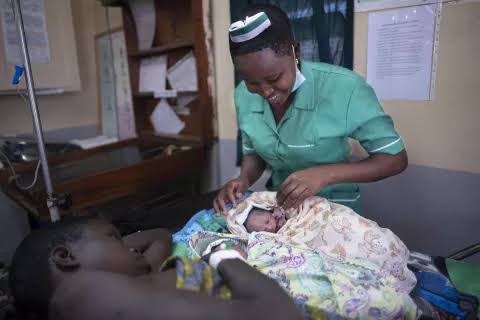The Kano State Government has reaffirmed its commitment to drastically reducing maternal mortality, following the conclusion of a five-day workshop on the Maternal and Neonatal Mortality Reduction Innovation Initiative (MAMII).
This was contained in a statement signed by Ibrahim Abdullahi, the Information Officer of the Ministry of Health, on Tuesday.
According to the statement, MAMII is a strategic intervention designed to combat maternal deaths across 172 priority LGAs nationwide, with Kano having the highest number of focus LGAs at 18.
Receiving the workshop report on behalf of the state government, the Commissioner for Health, Dr. Abubakar Labaran, assured that Governor Abba Kabir Yusuf remains steadfast in tackling maternal and newborn mortality in the state.
“Governor Yusuf has demonstrated his commitment by resuming free maternity services and distributing welcome packages for newborns in public health facilities,” Dr. Labaran stated.
According to the commissioner, the governor has approved the monthly distribution of maternal kits worth millions of naira to pregnant women across 60 health facilities and 63 primary healthcare centers in the state.
He further revealed that the government now provides free caesarean sections (CS) for women with pregnancy complications as part of efforts to reduce maternal deaths.
Dr. Labaran emphasized that the workshop had given the state government deeper insights into the root causes of maternal and newborn mortality.
He noted that issues such as zero-dose immunization and a high burden of diphtheria, inherited from previous administrations, are key challenges contributing to the crisis.
“We are determined to address these challenges by supporting the MAMII project and implementing strategic measures to improve maternal health outcomes,” he pledged.
Expressing concern over low hospital deliveries, Dr. Labaran lamented that only 30% of women in Kano give birth in health facilities, a factor that significantly contributes to maternal deaths.
He urged expectant mothers to seek medical care at hospitals, assuring that the government is working to improve healthcare infrastructure to meet universal health coverage standards.
“The Ministry of Health will study the workshop’s recommendations and implement them effectively with support from development partners,” he assured.
As part of long-term solutions, Dr. Labaran also revealed plans to collaborate with relevant MDAs to upgrade access roads in rural areas, ensuring that pregnant women can reach healthcare facilities more easily.


